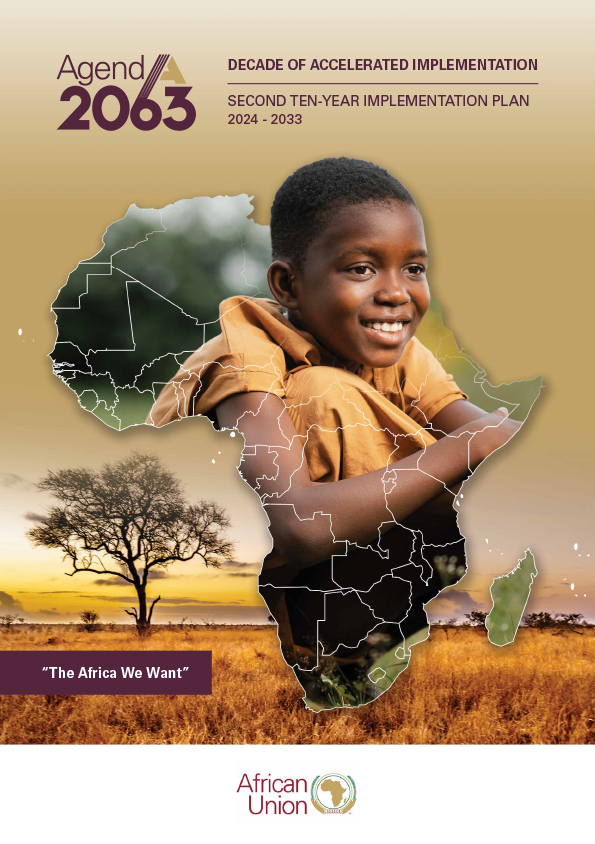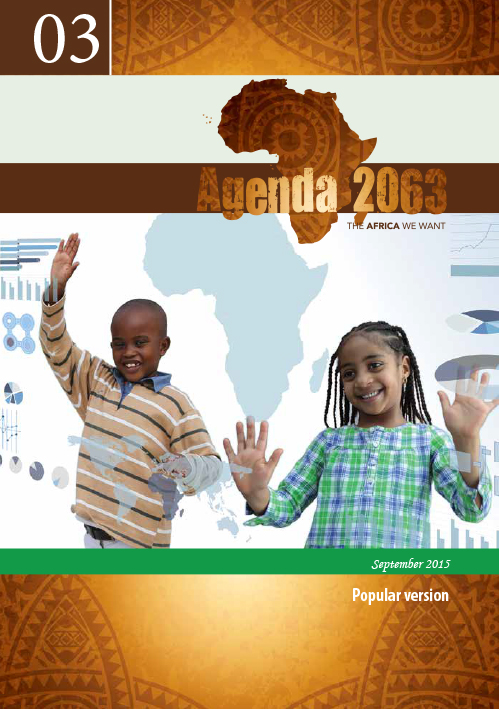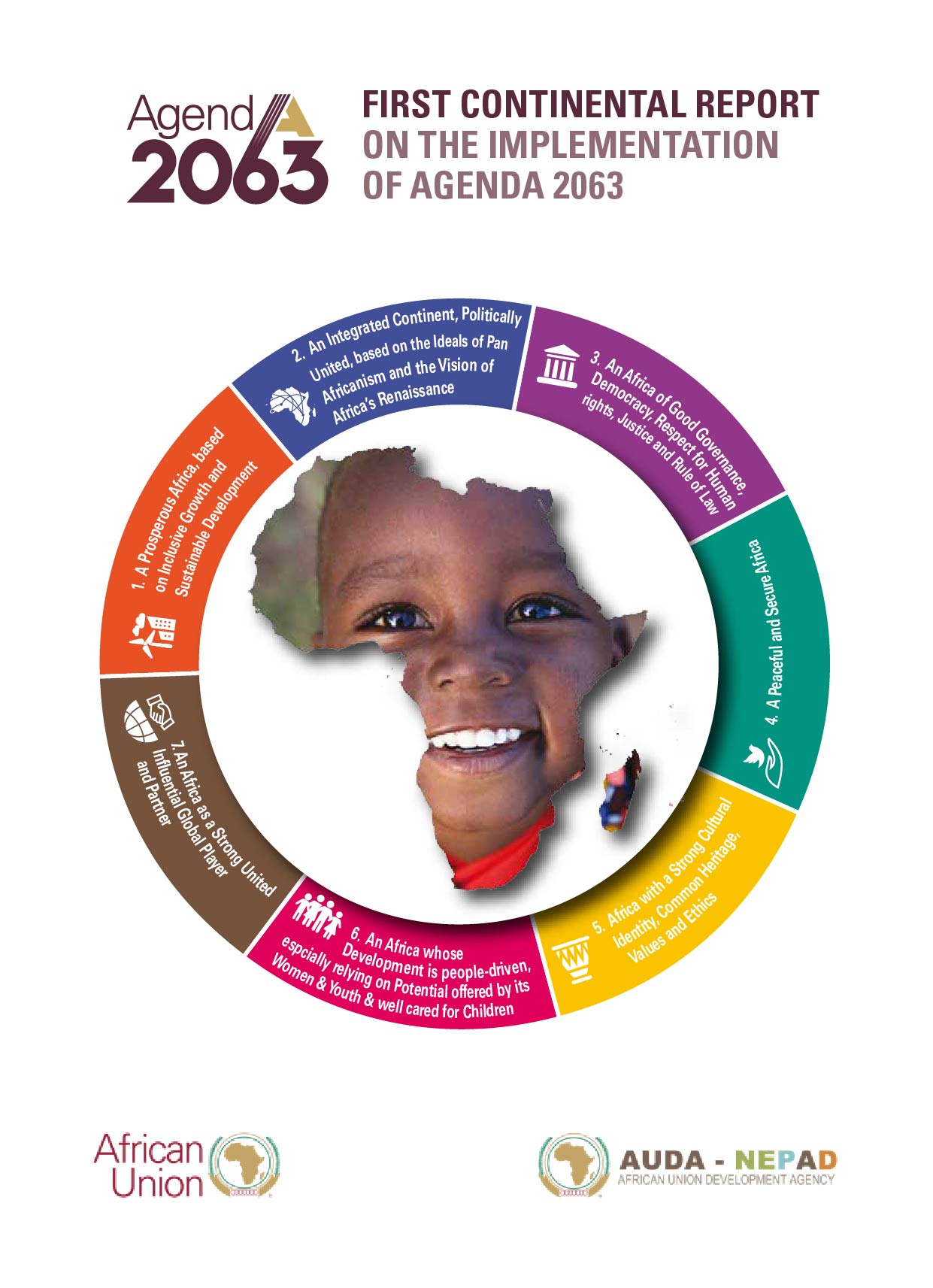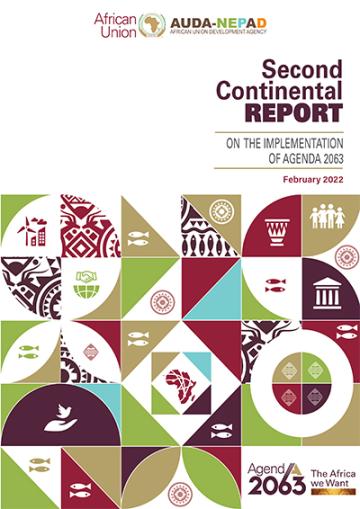Agenda 2063 was adopted by the 24th Session of the AU Assembly of Heads of State and Government in Addis Ababa in January 2015 under Assembly/AU/Dec.565(XXIV). The Agenda embodies the aspirations of the African people, framed in a collective ambition thus: “The Africa We Want in 2063”. The Agenda is operationalised through a series of five Ten-Year Implementation Plans, with the first plan straddling 2014 to 2023 and the second spanning 2024 to 2033. The second decade of Agenda 2063 places emphasis on the acceleration of implementation, building on the first that primarily focused on convergence.
Valuable lessons learned from the first decade of Agenda 2063 have been featured in the Agenda 2063 biennial progress reports and the evaluation of the First Ten-Year Implementation Plan, among other documents, which informed the design of the successor ten-year plan. Key among the revelations was the perception widely held by African citizens that Agenda 2063 is as relevant to the continent’s development discourses as it was in 2013.
Another fundamental revelation is the value accruing to concerted efforts and investments deployed in pursuit of common ambitions operationalised through a set of priority interventions and targets. Relatedly, and in light of the megatrends, transitions, and externalities, subsequent execution plans of Agenda 2063 should incorporate resilience measures to cushion the continent’s development gains from external shocks.
Furthermore, the revelations point to the need to place a premium on effective domestication, including awareness creation among a critical mass of citizens as a prerequisite for successfully implementing Africa’s development blueprint. Effective implementation of subsequent ten-year plans will also require that the plans are costed, funded mainly by African governments and citizens, and effectively monitored and assessed – with mechanisms for corrective action and incentives for enforcement strengthened. Agenda 2063 implementation plans should also make provision for the responsiveness of programmatic interventions to the dynamic and complex development environment and embody mechanisms for the surveillance of risks and leveraging opportunities presented by global trends and transitions such as digitization and climate change.
The Second Ten-Year Implementation Plan embodies, amongst others:
- An outline of Africa’s ambitions in the second decade that will guide development efforts of African citizens, Member States, AU Organs and Structures, and development partners;
- A Theory of Change that defines how results will be achieved and provides guidance on the Moonshot interventions and catalytic priorities, targets, and indicative strategies that strongly embed resilience; and
- A description of the governance and management arrangements for executing Agenda 2063 Second Ten-Year Plan.
Guided by the AU Vision of “an integrated, prosperous and peaceful Africa, driven by its citizens and representing a dynamic force in the global arena” and inspired by the need to accelerate implementation, the continent will pursue seven ambitions, referred to as “Moonshots” over the next ten years (2024 - 2033). The seven Moonshots are inspired by the seven aspirations of Agenda 2063 and are outlined below.
By 2033,
- Moonshot 1: Every AU Member State attains at least middle-income status.
- Moonshot 2: Africa is more integrated and connected.
- Moonshot 3: Public institutions are more responsive.
- Moonshot 4: Africa resolves conflicts amicably.
- Moonshot 5: African culture and values are explicit and promoted.
- Moonshot 6: African citizens are more empowered and more productive.
- Moonshot 7: Africa is a strong and influential global player.
While presented as discrete, the Moonshots are interlinked, with African citizens as the central focus. Each Moonshot has a set of catalytic priorities, corresponding targets, and indicative strategies. Furthermore, the Plan highlights three significant pathways that will guide the implementation, namely AU continental frameworks, regional frameworks, and national development plans.
The Second Ten-Year Implementation Plan of Agenda 2063 also enumerates a set of enablers for effective implementation of the Plan. These are:
- coordination;
- communication and advocacy;
- partnerships;
- financing;
- monitoring, evaluation, data, accountability, and learning;
- domestication of Agenda 2063;
- harnessing appropriate technologies in the implementation of the STYIP; and
- capacity development.
In addition, the main assumptions and critical success factors for implementation of the Plan are outlined. They include strongly embedding resilience in the Second Ten-Year Implementation Plan (STYIP), active participation and engagement of all key stakeholders, strong alignment of National Development Plans with Regional and Continental Plans, strong human and institutional capacities, and full ownership and responsibility for implementing the STYIP by AU Member States.
A compendium of technical guidelines and normative framework documents will be prepared as an integral part of the implementation architecture. The compendium will be informed by the results matrix and the new knowledge and experiences in Africa’s development ecosystem.




